How to Invest in Land
- September 2, 2024
- 0 comment
Investing in land can be a great way to build wealth over time. Unlike other types of real estate, land does not depreciate and can often increase in value as demand grows. Many people see land as a solid investment because it is a limited resource, and as populations expand, the need for land rises. By owning land, you can benefit from long-term appreciation and even earn money through leasing or selling.

However, investing in land is not as simple as just buying a piece of property. It requires careful planning and research to ensure you make the right decisions. Understanding the different types of land investments, knowing the market trends, and evaluating the land’s potential are crucial steps. With the right knowledge and strategy, you can successfully navigate the world of land investment and achieve your financial goals.
Understanding Land Investment
Investing in land means buying plots of land with the goal of making money. You can earn returns in different ways, such as renting the land to farmers or businesses, selling it later at a higher price, or even developing it for homes or commercial use. One of the unique aspects of land investment is that land is a limited resource; there’s only so much of it available.
As more people move to cities and towns, the demand for land often increases, which can lead to higher prices over time. Unlike other types of real estate, such as houses or commercial buildings, land does not require maintenance like repairs or renovations. This can make it an attractive option for investors who want a simpler investment.
However, it’s important to research the location and potential uses of the land before purchasing. Factors like zoning laws, nearby developments, and market trends can greatly affect the value of your investment. By understanding these elements, you can make informed decisions and maximize your returns from land investment.
Types of Land Investments
- Residential and Commercial Development: Buying land in areas projected for growth to sell to developers or develop yourself.
- Raw Land: Purchasing land in its natural state, offering flexibility for future use based on zoning and location.
- Agricultural Land: Investing in farmland for crop production or livestock, which can provide steady income.
- Specialty Farming: Engaging in niche markets such as organic farming, vineyards, or orchards, which can yield higher returns.
- Recreational Land: Buying land for recreational purposes, such as hunting or camping, which can be leased out for income.
- Renewable Energy Leases: Leasing land for solar or wind energy projects, providing long-term income through energy contracts.
Considerations Before Investing
Research the Market
Before investing in land, it’s essential to research the local market. This means looking into real estate trends, understanding zoning laws, and checking property values in the area. Knowing what is happening in the market will help you spot good investment opportunities and avoid mistakes.
For example, if you find an area where property values are rising, it may be a good time to buy. Additionally, understanding zoning laws will tell you what types of buildings or uses are allowed on the land, which can affect your investment’s potential.
Evaluate Land Potential
Next, you should evaluate the land’s potential based on your plans for it. Think about what you want to do with the land whether it’s for building homes, farming, or recreational use. Research the demand for residential or commercial properties in the area.
If many people are looking for new homes or businesses, your investment could pay off in the future. It’s also important to consider the land’s physical characteristics, such as soil quality, access to water, and proximity to roads, as these factors can impact its usability.
Understand Costs
Understanding all the costs involved in purchasing land is crucial. Besides the purchase price, you need to consider property taxes, legal fees, and any costs for clearing or preparing the land for use. Maintenance costs, such as keeping the land free of weeds or managing access roads, should also be factored in. Knowing these costs upfront will help you create a budget and avoid surprises later on.
Long-Term Appreciation
When investing in land, consider its potential for long-term appreciation. Land can increase in value over time due to various factors, such as new infrastructure (like roads and schools) being built nearby or population growth in the area.
Keeping an eye on local development plans can give you insights into how your investment might grow in value. Investing in land with good long-term potential can lead to significant profits down the line.
Legal Aspects
Familiarizing yourself with the legal aspects of land ownership is vital. Each area has its own regulations, property taxes, and zoning restrictions that can affect your investment. Make sure to check for any easements or restrictions that might limit how you can use the land.
Consulting with a real estate attorney or local government offices can help you understand these legal requirements and ensure that you comply with all necessary laws. This knowledge will protect your investment and help you avoid legal issues in the future.
Strategies for Successful Invest in Land
- Buy and Hold: This long-term strategy involves purchasing land in a growing area and waiting for its value to be appreciated. During the holding period, you can lease the land for agricultural or recreational use to generate income.
- Land Leasing: Leasing your land for agricultural, commercial, or recreational purposes can provide steady income without the need to sell.
- Land Flipping: This involves buying undervalued land, making improvements, and selling it at a profit. This strategy requires market knowledge and an understanding of development costs.
- Investing in REITs: Real Estate Investment Trusts (REITs) allow you to invest in land without direct ownership, providing diversification and liquidity.
- Utilizing 1031 Exchanges: This tax strategy allows you to defer capital gains taxes by reinvesting proceeds from the sale of land into a similar property.
Conclusion
Investing in land can be a rewarding venture, offering both passive income and capital appreciation. By conducting thorough research, understanding the market, and choosing the right investment strategy, you can maximize your chances of success in land investing. Whether you’re looking to buy raw land, develop residential properties, or lease for agricultural use, the key is to approach your investment with a well-informed strategy and a long-term perspective.
Frequently Asked Questions
1. What are the main benefits of investing in land?
Investing in land offers several benefits, including long-term appreciation, passive income opportunities through leasing, and lower maintenance costs compared to other real estate investments. Land is also a limited resource, making it a valuable asset over time.
2. What types of land can I invest in?
You can invest in various types of land, such as residential and commercial development land, raw land, agricultural land, specialty farming land, recreational land, and land for renewable energy leases. Each type has different potential uses and returns.
3. How do I evaluate the potential of a land investment?
To evaluate the potential of a land investment, consider factors like location, zoning laws, nearby developments, and market trends. It’s important to assess the land’s suitability for your intended use and its potential for future appreciation.
4. What costs should I consider before purchasing land?
When purchasing land, consider costs such as the purchase price, property taxes, legal fees, and any expenses related to clearing or preparing the land. Maintenance costs, like weed control and road access management, should also be factored in.
5. How can I generate income from land while holding it?
You can generate income from land by leasing it for agricultural purposes, recreational use, or commercial activities. Additionally, you can consider land flipping, where you buy, improve, and sell the land at a profit.
6. What legal aspects should I be aware of when investing in land?
It’s crucial to understand the legal aspects of land ownership, including zoning laws, property taxes, and any easements or restrictions on the land. Consulting with a real estate attorney can help ensure compliance with all legal requirements.
7. What is the ‘buy and hold’ strategy in land investing?
The ‘buy and hold’ strategy involves purchasing land in a growing area and holding onto it until its value appreciates. During this period, you can lease the land to generate income. This strategy is ideal for long-term investors.
8. How does land flipping work?
Land flipping involves buying undervalued land, making improvements, and selling it at a higher price. This strategy requires thorough market research and an understanding of development costs to ensure profitability.
9. Can I invest in land without directly owning it?
Yes, you can invest in land indirectly through Real Estate Investment Trusts (REITs). REITs allow you to invest in land and other real estate assets without the need for direct ownership, offering diversification and liquidity.
10. What is a 1031 Exchange, and how can it benefit my land investment?
A 1031 Exchange is a tax strategy that allows you to defer capital gains taxes by reinvesting the proceeds from the sale of land into a similar property. This can help you grow your investment portfolio while minimizing tax liabilities.
We hope this comprehensive guide on how to invest in land has equipped you with the essential knowledge needed to make confident and informed decisions. Whether you’re planning to invest in residential development, agricultural land, or recreational property, understanding the critical aspects like market trends, legal considerations, and long-term strategies is key to maximizing your investment.
If you have any experiences or additional insights about land investment, we encourage you to share them in the comments below. Your advice could be invaluable to others who are exploring the opportunities and challenges of land investment. Don’t hesitate to share this guide with anyone who might benefit from it, and best of luck as you embark on your journey in the world of land investing!

James Wilson
Forestry AuthorJames Wilson has over 15 years of experience in forestry economics, specializing in sustainable practices, investment opportunities, and financial management. He has contributed to notable publications like "Forestry Today" and "EcoFinance Journal" and is known for providing practical and insightful advice. With a degree in Environmental Economics, James stays updated through continuous learning and active participation in industry discussions. Outside work, he enjoys hiking and nature photography, bringing a well-rounded perspective to his professional role.

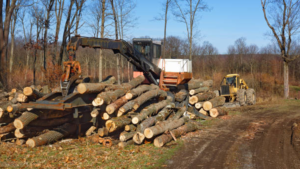
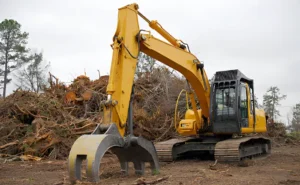



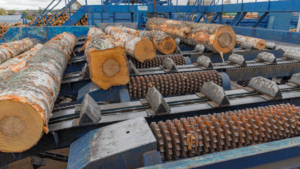



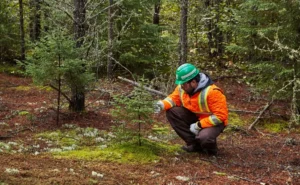
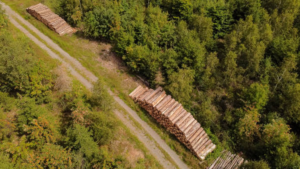

Leave your comment